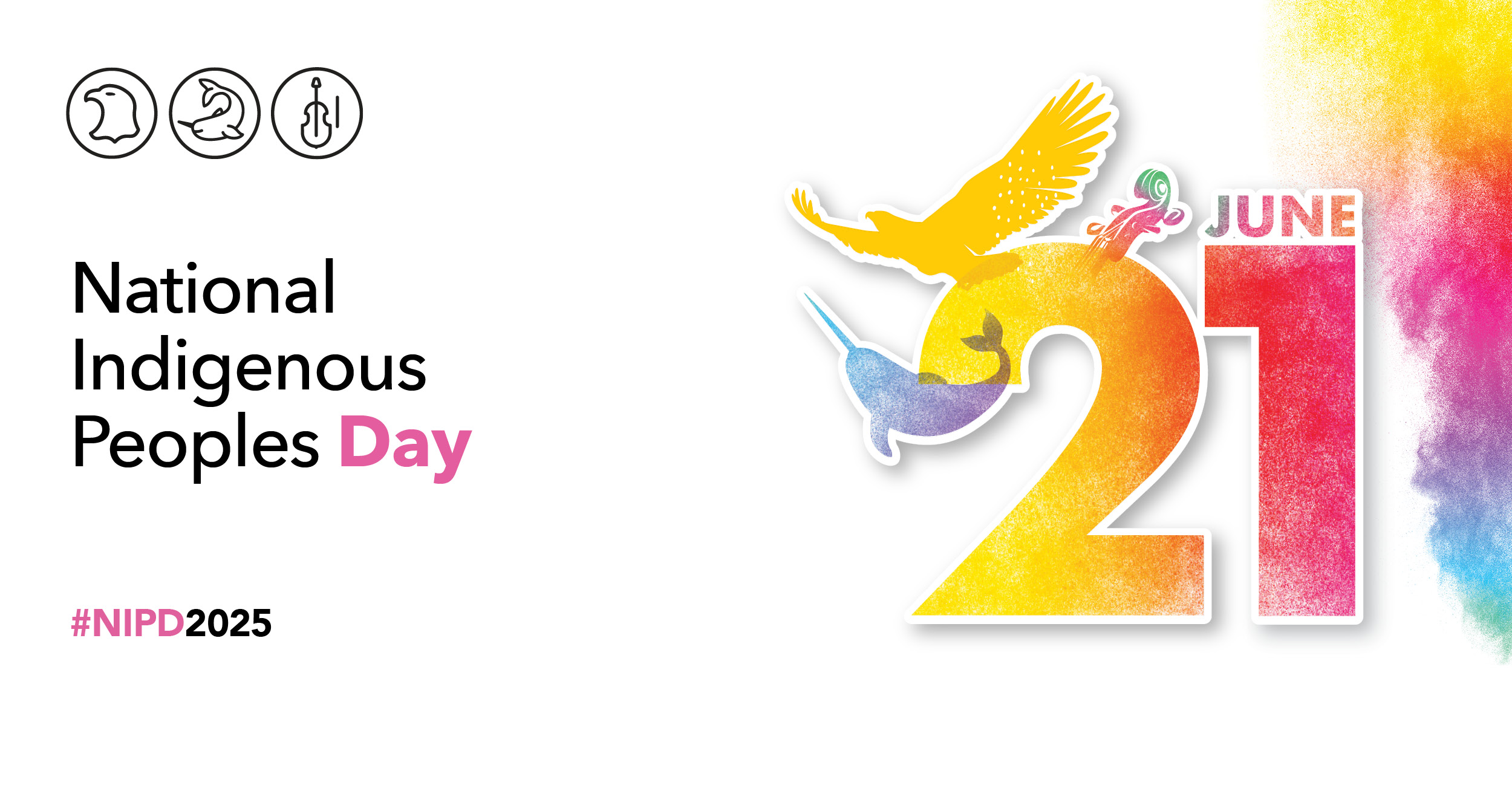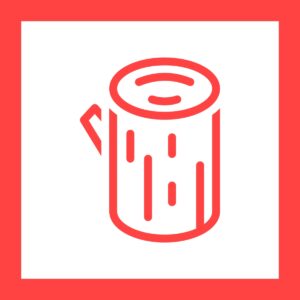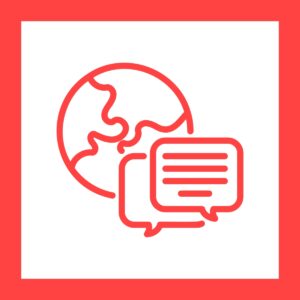
To celebrate National Indigenous Peoples Day, we present a wide-ranging initiative being conducted in Québec: the revision of the vocabulary concerning the Indigenous peoples in the Répertoire de vedettes-matière (RVM, Directory of Subject Headings) of the Bibliothèque de l’Université Laval.
To cover this essential initiative, we sat down with Joë Bouchard, who is actively involved in the revision process of the RVM. He is a librarian at the Université Laval and specializes in Indigenous documentary heritage.
Subject Headings: An Overview of a Little-Known Concept
A subject heading is a term or a set of terms that designates and describes a documentary resource, helping researchers locate it. Unlike key words, subject headings are part of a controlled vocabulary, meaning that their number is limited by a predefined lexicon. Consequently, each concept is linked to a unique term, preventing any confusion or proliferation of synonyms.

Subject headings are useful, since keywords can appear in several places within a document, without necessarily being relevant. For example, you’d want to avoid the name of scientist Samuel H. Wood — the first man to ever clone himself — appearing in search results about the international trade of lumber!
While the term is rather unknown outside the world of the documentary sciences, this tool is used daily and has a normative and structuring influence on the space certain communities or ideas occupy in current scholarly discourse. How does this problem manifest, and what solutions can be implemented to fix it?
Université Laval and its World-Class Directory
Since 1946, the Bibliothèque de l’Université Laval has had its own Répertoire des vedettes-matière (RVM), to which more than 180 institutions from Canada, Europe (notably France, Belgium and Spain), and Asia are subscribed.
Today, the RVM contains 748,607 subject headings, organized into five directories (sometimes called “thesaurus”). Of course, use of the RVM is not reserved to only researchers: indexers make use of it, as well as organizations looking to describe the content of their documents in a standardized manner. Library users can also rely on the vocabulary in the RVM to conduct more efficient documentary research.
Decolonizing Vocabulary
While essential to organizing information in Western institutions, knowledge standardization tools also represent major issues. By standardizing the nomenclature used to describe certain entities (a group of people for example), there is a relation of authority established by those who decide on this nomenclature and the entities being named.
In the RVM, the act of naming, and standardizing the nomenclature, can have involved colonial terms, which can be inaccurate and disrespectful.
Indeed, these classification systems express an entire view of the world and of knowledge.
To correct this issue, the team of librarians at the Université Laval has undertaken the project of revising all the vocabulary used to describe the Indigenous Peoples so that the terms in the RVM can be more precise, more respectful of the realities they describe and, as much as possible, exempt from cultural, historical and colonial biases.

According to Joë Bouchard, this process “is part of a movement to decolonize the vocabulary of documentary science that is ongoing in libraries, museums and archives” in several Western countries. Along with other institutions like Library and Archives Canada and the United States Library of Congress, the Bibliothèque de l’Université Laval has adopted a proactive role in recognizing the colonial heritage of certain terms being widely used in these directories.
And so, in 2021, the governance committee for the Répertoire des vedettes-matière set this project in motion, as “for some time, biased or disrespectful terms describing Indigenous people in the RVM had been flagged by the staff of the thesaurus [the people working for the directory] and of the Bibliothèque de l’Université Laval, as well as by various RVM users and clients.”
But why focus on the vocabulary describing Indigenous Peoples? For Joë Bouchard, the fundamental issue “is that the vocabulary being used to describe documentary resources […] was developed from a Eurocentric point of view.” This means that the language being used “is linked to a dynamic of domination that creates historical, colonial, identity and cultural biases.”
For example, the project’s team modified the previous heading “Indiens d’Amérique” (American Indians) by “Peuple autochtones” (Indigenous Peoples), because:
“To paraphrase Anishinaabe jurist John Borrows, the term “Indian” is a creation of Europe’s imagination, which was imposed on Indigenous people, by law, by the federal government. According to him, Indians start existing only from the moment that the state gives itself permission to control Indigenous identities. The choice of this new form aligns with our partners’ desire to not only replace the old subject heading with a respectful expression, but also to have the selected term be a source of pride.”
The project of revising the vocabulary describing the Indigenous Peoples recognizes that pejorative or inaccurate vocabulary contributes to the symbolic marginalization of the First Peoples and that a complete integration of those people’s perspective is key to freeing them from pejorative, inaccurate and disrespectful representations.
Moreover, the use of such dated terms can hinder cataloguing efforts and make access to information more complex. A study conducted by three researchers from the University of British Columbia highlighted this reality: in the WorldCat database, a search made on the subject heading “Indians – Food” would generate results concerning cuisine in India as well as the culinary traditions of the Indigenous Peoples, while the request for “Indian cooking” would generate sources only related to the cuisine of India on the first page of search results.
Working at the Speed of Trust
To conduct its revision project, the team at the Bibliothèque de l’Université Laval has been working in close collaboration with members of the First Peoples who have expertise on the issues. Together, the group discusses problematic subject headings and finds solutions to integrate Indigenous perspectives into the new terms being retained.
The revised lexicon is split into two categories: specific vocabulary, which concerns a particular nation, and generic vocabulary that applies to all or several nations.
“For specific vocabulary, this involves working with partners from each of the eleven Indigenous nations within Québec to look over the subject headings that concern their nation. These partners know the issues that are specific to their community and which terms or concepts are used within them, and which are not.”
Concerning generic vocabulary, Joë Bouchard explains that “our partners have expertise on the major issues facing the First Peoples. Alongside them, we consider often complex subjects that require in-depth reflection […] For example, think of the semantic network of subjects in the field of literature, or the set of subject headings around the reservation system.”

As it might be expected, this initiative by the Bibliothèque de l’Université Laval will take time, as the collaboration process with the members of the First Peoples requires understanding, rather than efficiency. “Sharon Farnel, librarian and researcher at the University of Alberta, who also works along members of the First Peoples, says that we have to work with our partners at the speed of trust.”
What’s Next ?
As of today, more than 550 subject matters have been revised. The work has been completed for the Atikamekw, Wolastoqiyik and Innu Nations, while the team at the Université Laval is currently working with Inuit partners on the subject headings concerning that community.
While the project is limited for now to subject headings related to the First Peoples living within the borders of Québec, the team intends to broaden its scope to include the Indigenous Peoples of other Canadian provinces and, eventually, other countries in the Americas.